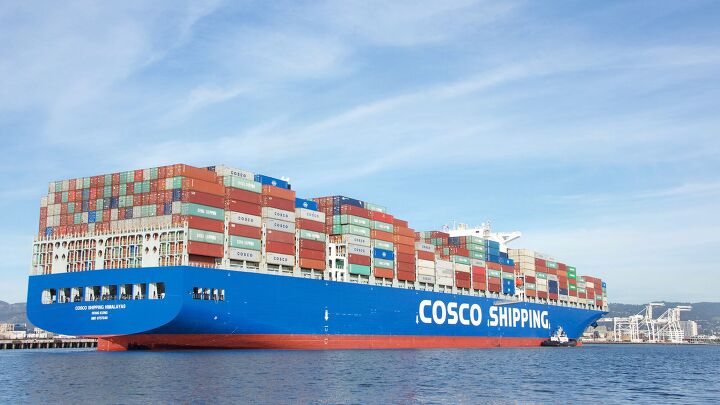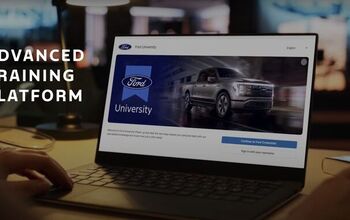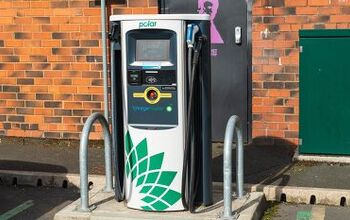China Needs More Ships to Handle Its Rapidly Growing EV Exports

China had long been a sort of a sleeping giant in the world economy, though it hasn’t been so sleepy over the last few decades. The country’s tech, automotive, and manufacturing industries have become juggernauts in their respective sectors, and the Chinese auto industry has solidified itself as a global force. Automakers there are exporting so many electric vehicles that China has found its shipping fleet – already the eighth largest in the world – is inadequate to handle the volume.
China is expanding its shipping capabilities to the point that it will become the fourth-largest fleet in the world, and it’s opening new trade routes to accommodate all the action. Companies like BYD, SAIC Motor, Chery, and others have ordered dozens of new ships as the country’s auto industry has overtaken Japan’s as the world’s largest exporter.
Though it’s growing rapidly, the Chinese automotive sector has been criticized by Europe, America, and others for the government’s heavy subsidies that make it unfairly competitive against higher-priced Western models. The U.S. government has made it nearly impossible for Chinese companies to sell vehicles here, though that could always change, and BYD has said that it has no plans to do business here.
Even so, American companies like Tesla face an uphill battle competing with Chinese automakers as it goes back and forth with BYD for world sales records. Pricing remains a challenge for electric vehicles in America for now, though, as no automaker has been able to crack the affordability nut. That, along with the highly polarized political environment here, has slowed EV adoption, so it could only be a matter of time before demand for cheaper Chinese models intensifies.
[Image: Sheila Fitzgerald via Shutterstock]
Become a TTAC insider. Get the latest news, features, TTAC takes, and everything else that gets to the truth about cars first by subscribing to our newsletter.

Chris grew up in, under, and around cars, but took the long way around to becoming an automotive writer. After a career in technology consulting and a trip through business school, Chris began writing about the automotive industry as a way to reconnect with his passion and get behind the wheel of a new car every week. He focuses on taking complex industry stories and making them digestible by any reader. Just don’t expect him to stay away from high-mileage Porsches.
More by Chris Teague
Latest Car Reviews
Read moreLatest Product Reviews
Read moreRecent Comments
- Rover Sig Sedans/coupes fill an important role. They can range in size, price, and gas mileage so as to be ideal for many buyers. The market is still there to justify the production, although small SUVs and crossovers dominate the market. There is even room for the station wagon (I think of the Outback as a station wagon, although a lot of you call it a SUV). External factors, like the retreat from EVs and the potential for increased gas prices, make sedans an important sector - not just a niche. Besides, they generally handle better than SUVs, don't they?
- Bd2 Sonota and K5 are each an absolute unit in the segment. High ATPs tell the story of money to be made in sedans.
- MaintenanceCosts Nope. The CUV is now the default car, and the sedan is a specialty product. For baseline competitiveness the OEMs need a full lineup of CUVs. Full-line OEMs also need pickup trucks and a couple sizes of SUVs. Sedans are what coupes used to be: a bonus afterthought.
- Jeff I believe if they made sedans with usable trunks, taller, and easier to get in and out of more people would buy them. The trend toward sloped roofs, lower profiles, and small trunks has increased sales of crossovers and suvs.
- KOKing Toyota still moved half a million Camrys and Corollas in the US last year, and although I can't find Model 3 numbers on their own, I'm guessing it's in the 200k range, so sedans aren't going the way of the PLC. Clearly SUVs and trucks have higher margins, and it's all about 'shareholder value' for the Big 3 in particular, so I don't seem them bringing em back if/until the pendulum swings back in another generation or two.


































Comments
Join the conversation
At least two car carrier ships with high end European EV cars aboard have caught fire in the Atlantic, on their way to America. The crews abandoned the ships, since there was no way to stop the fires, and the ships burned until they sank. What shipping company would be stupid enough to ship Chinese EVs across the pacific?
What can be more green than shipping an EV half way around the world?